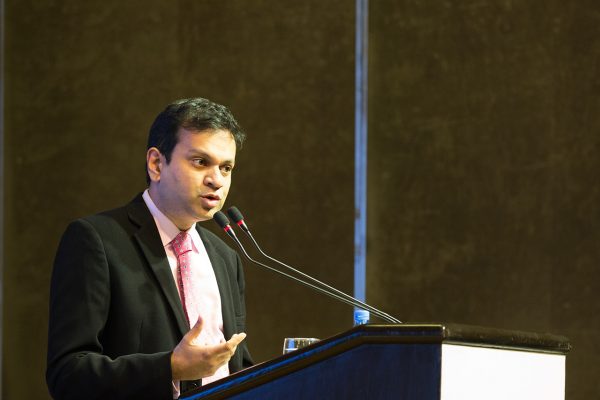Reading Time: 3 minutes
Bangladesh has four million child brides, the second-highest in the world. More than half of all married women now in their twenties were married before the age of 18. At BRAC, tackling this challenge is one of our highest priorities. Here is a snapshot of how we are trying to change the futures of girl children.
Girl children often discontinue education when they are married early, because of peer pressure from their new in-laws and lack of time, as a result of being occupied with domestic duties such as household chores and raising children. 1.7 million girl students and women received services through the BRAC Education Programme in 2019, including 377,290 girl students enrolled in BRAC schools. 6,776 girl students successfully passed the primary education completion examinations with a pass rate of 99.56.
Girl children are often unaware of their rights because they often have limited access to legal information. 115,785 girls and women attended legal classes through BRAC Human Rights and Legal Services in 2019-2020. 46,965 complaints were received by girls and women at legal aid clinics and 31,249 resolved through Alternate Dispute Resolution between January 2019-August 2020. 670 million BDT was claimed and recovered through Alternate Dispute Resolutions and court cases during the same period.
Girls often have limited access to skill development opportunities, particularly in non-traditional trades. 16,650 adolescent girls accessed skill development courses in 2019 through BRAC Skill Development Programme.
Child brides are at higher risk of being trafficked or exploited and are unable to access government services, often because their birth dates or marriage dates were never legally registered. 925,589 women and girls received awareness training on safe, orderly migration and human trafficking in the name of labour migration through BRAC Migration program in 2019. 1,132 female returnee migrants received emergency support (food, accommodation, transport, telecommunication support, etc) at the airport upon return.

Photo Credit:Pronob Ghosh@BRAC
Child marriage, sexual harassment and cyberbullying among adolescent girls is common in Bangladesh. 670 child marriages were prevented, and 671 other services, including legal and medical treatment, psychosocial counselling, rehabilitation and reintegration were received by girl survivors of sexual assault in 2019 through BRAC’s Community Empowerment Programme. 60,020 girls were reached through awareness activities and training sessions by the MEJNIN (Meyeder Jonno Nirapod Nagorikotto – ‘safe citizenship for girls’) project and 350 cases of sexual harassment and other crimes were reported by 90 student watch groups, which include 1,425 girls.
Children make up approximately half of the one million Rohingya seeking refuge in Bangladesh. 28,394 girls from the Rohingya community learned in play-based learning centres which contribute to children’s cognitive, physical and social development, through BRAC Humanitarian Crisis Management Programme. 8,636 adolescent girls learned to build leadership skills, increase resilience and improve their ability to manage emotions. 680 adolescent girls accessed pre-vocational skills sessions to diversify and strengthen future livelihood opportunities. Girls make up 51% of students in the learning centres in the Rohingya camps, and 55% of students registered in the host community learning centres. 97,950 Rohingya children under the age of five received outpatient care through the 11 primary health care centres, out of which 49,675 were in 2020.
Students in urban areas often live in poverty, as their families have migrated from rural areas for better work opportunities. It is crucial that these children attend school, even if their parents cannot afford to send them or the school facilities are not gender-inclusive. 860 school-going girls from low-income households received stationery, school bags and umbrellas through BRAC’s Urban Development Programme between January 2019-October 2020. 300 girl students in Mymensingh received access to improved water, health and sanitation facilities and menstrual hygiene-friendly toilets installed in 2019.
River erosion, lack of transport and poor quality road networks are major challenges to people seeking employment in hard-to-reach areas such as haors (wetlands). As a means of financial and social security, many parents choose to get their daughters married at an early age. 65,135 mothers living in hard-to-reach areas received orientation on non-discrimination, child sexual abuse, child marriage and violence against women and children through awareness sessions conducted through BRAC Integrated Development Programme in 2020. 775 girls in the haor areas are actively engaged in the 30 of BRAC’s adolescence development programme’s club activities, all of which are being led by girls.

Photo Credit:Pronob Ghosh@BRAC
Hygiene products are often not prioritised by families living in poverty, meaning that girls often suffer from preventable sanitation-related diseases. 137,423 packets of sanitary napkins were distributed to adolescent girls and women in low-income households from BRAC Health, Nutrition and Population Programme during the COVID-19 pandemic. In 2019, 2.5 million women and adolescent girls received nutrition education and services and 441,732 adolescent forums were conducted where sexual and reproductive health and menstrual health and hygiene was discussed.
Girl children often have the least access to information. 9,600 girls were reached with messaging on gender justice through the BRAC Gender, Justice and Diversity Programme from May-September 2020.
As the world celebrates International Day of the Girl Child, we strengthen our commitment to ensure that girls everywhere have access to their rights, opportunities and education to live with dignity. Investing in the next generation needs to be a priority now more than ever, and girl children must be energised and recognised, counted and invested in.
Lina Dilruba Sharmin is a Communications Specialist, BRAC. Luba Khalili is a Deputy Manager, Content and Campaign, BRAC. Sarah-Jane Saltmarsh is Head, Programme and Enterprise Communications BRAC.
Cover Photo:BRAC





